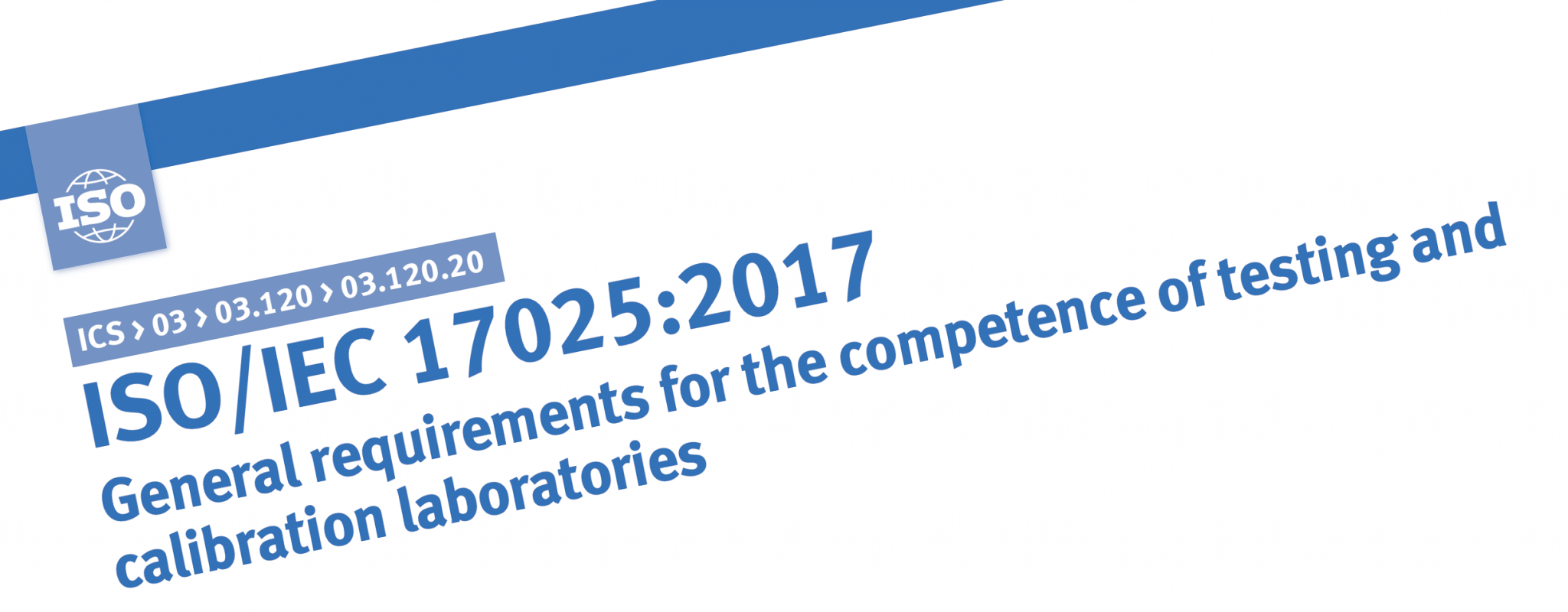Quality is generally transparent when present, but easily recognized in its absence.
Quality Management and ISO accreditation
A well-equipped laboratory building, state-of-the-art equipment, well trained and motivated staff and all that under good and efficient management – at first glance this seems to be all that is required to produce good laboratory output and analytical results.
We know of course that this is not the full story. You need to show that your measurements are accurate and reproducible, that your lab is impartial towards the customer, follows science based analytical procedures, that you have a system in place to deal with errors and deviations from your documented procedures.
In short you require Quality Control (QC), Quality Assurance (QA) and a Quality Management System (QMS). You also require an external body to certify you against an internationally accepted standard. In case of analytical work related to CBRN materials this standard is norm ISO 17025 (or ISO 15189 for medical laboratories dealing with clinical samples ) and the certifying body is normally your national accreditation body.
Quality Management Systems do not need to be a bureaucratic nightmare
For many people working in an accredited area the idea of QM is related to overburdening bureaucracy, paperwork and an overhead of additional work that impedes the main analytical tasks in the lab. We believe however, that QM systems - when properly implemented - can achieve all goals (delivery of results following standardized practices, maintaining and gradually improving the quality of procedures and results) without turning into an administrative nightmare.

The ideas of control and improvements are often confused with one another. This is because quality control and quality improvement are inseparable.
Specific challenges for chemical defence labs – Flexible scopes
While accredited methods for the determination of specific pathogens or types of radiation and radioactive materials can be created in a rather straight forward manner, doing the same in the field of chemical defence is quite more challenging as the number of target analytes is practically unlimited (e.g. there is an unlimited number of chemicals in Annex on Chemicals of the Chemical Weapons Convention – so called “scheduled chemicals”). This requires an accreditation with a flexible scope for qualitative (and maybe quantitative) analysis. This is a rare combination for accreditation bodies and requires a careful and thoughtful approach when working with them on the way to accreditation.
We are offering our clients advice and guidance on the way towards ISO17025 (or ISO 15189) accreditation. From the first steps of planning, via the definition of the scope of accreditation, the creation of required documents (quality manual, standard operating procedure and work instructions), the implementation of an effective management system, the conduct of internal audits. to working with your external accreditation agency towards external audits.
We also offer our services after your laboratory received accreditation by helping you to implement revision cycles for quality documents, plan for and conduct your internal and external audits and your re-accreditation while working towards improvements in the system and the quality of analysis results.
ISO17025 accreditation is a mandatory requirement for being an OPCW designated laboratory (together with successful participation in Proficiency Tests).

